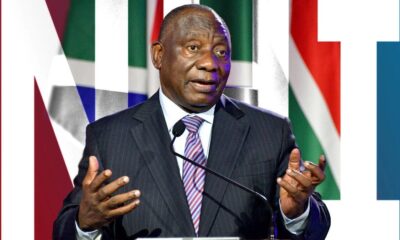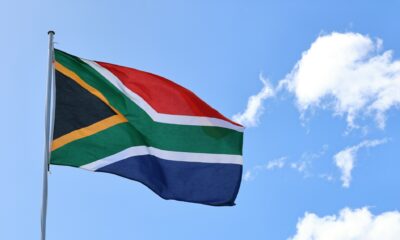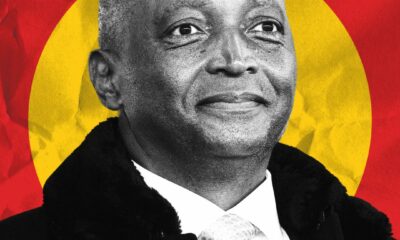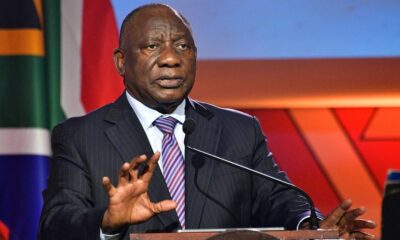News
South Africa Finally Declares GBVF a National Disaster, But Women Ask: What Took So Long?
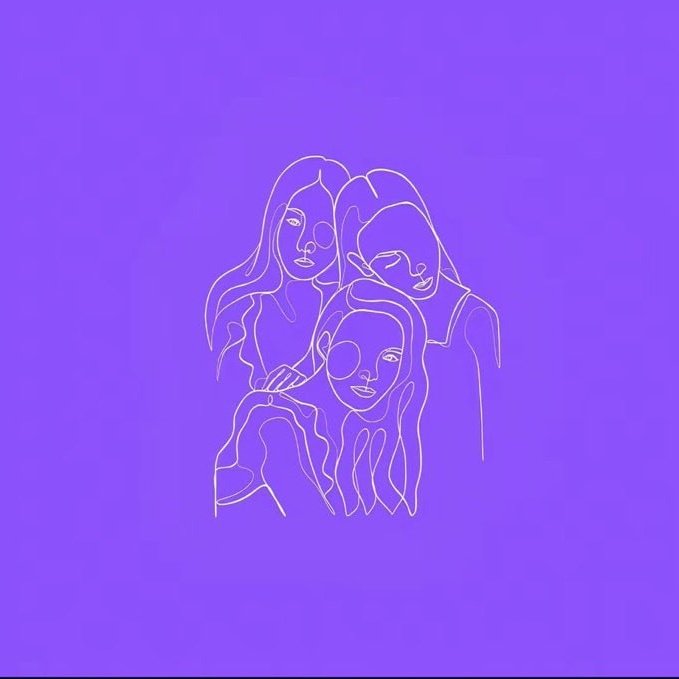
South Africa Finally Declares GBVF a National Disaster, But Women Ask: What Took So Long?
South Africa has taken one of its most dramatic steps yet in the fight against gender-based violence and femicide (GBVF): officially declaring it a national disaster.
The announcement comes on the heels of nationwide shutdowns, emotional protests, and global scrutiny ahead of the G20 Leaders Summit in Johannesburg.
Across social media, the reaction has been instant and raw.
“It shouldn’t have taken a march. Or a hashtag. Or funerals,” one X user wrote.
“But here we are. Let’s hope it actually means something this time.”
A Decision Years in the Making
Minister of Cooperative Governance Velenkosini Hlabisa confirmed the declaration, announced after the National Disaster Management Centre (NDMC), led by Dr Bongani Elias Sithole, invoked Section 23 of the Disaster Management Act.
The move follows what officials called a “reassessment” of previous reports and submissions from government entities and civil organisations. In simpler terms: the violence never stopped, the risk only grew, and the state finally acknowledged it meets the legal threshold of a national disaster.
Hlabisa framed the moment as decisive and overdue:
“This confirms a fundamental truth: GBVF is not a women’s issue. It is a national crisis.”
What the Classification Actually Means
This is not a state of emergency.
It does not give government special emergency powers.
Instead, it forces every organ of state, from SAPS to Social Development to municipalitiesto:
-
Strengthen support for GBVF response programmes
-
Activate existing contingency plans
-
Improve coordination across government departments
-
Implement multisectoral prevention and relief measures
-
Submit regular progress reports to the NDMC
It also reinforces major ongoing initiatives such as:
-
The Inter-Ministerial Committee on GBVF
-
NATJOINTS Priority Committee
-
The 90-Day GBVF Acceleration Programme
-
Expansion of Thuthuzela Care Centres
-
Strengthening sexual offences courts
-
Justice system reforms
In short: the system must begin working the way it always should have.
Women for Change: “This Is Your Move, Government.”
The declaration comes only a day after Women for Change mobilised one of the largest coordinated shutdowns in recent years. The timing is no coincidence.
On 21 Novemberjust hours before the G20 Summitstreets, campuses, and office parks across the country saw women in black T-shirts demanding urgent intervention.
Their message: “Stop the killings.”
Women refused to work, spend money, or engage in unpaid labour, emphasising their economic and social power.
“We cannot speak of growth when a woman is buried every 2.5 hours,” the organisation said.
Activists online celebrated the declaration, but many expressed cautious hope:
“Until the police respond faster than the hashtags, we’re not done.”
Pressure Also Mounting from the Presidency
President Cyril Ramaphosa publicly supported the move earlier this week, saying women are “crying out” for protection and action. Speaking in Boksburg, he referred to GBVF as a “crisis” requiring extraordinary intervention.
“They need support from their government and from the men of South Africa,” he said.
The president acknowledged that for years, survivors’ lived experiences have not matched the promises in Parliament or glossy national action plans.
Other Groups Joining the Streets
While Women for Change led the shutdown, the G20 Summit also attracted other civic movements.
Operation Dudula, for example, confirmed peaceful demonstrations aimed at highlighting issues of poverty and unemployment.
Movement leader Zandile Dabula insisted their focus was socioeconomic justicethough many observers noted how issues of violence, marginalisation, and inequality often overlap with the roots of GBVF.
Now What? The Work Begins After the Declaration
The declaration can be revoked if the government does not eventually escalate to a full national state of disasteror if the situation improves enough that GBVF no longer meets the criteria.
For many South Africans, that feels like a distant reality.
GBVF has long been called the country’s “silent pandemic.”
But nothing about it is silent anymore.
The shutdowns, the marches, the national grief, the pressure from international observersall of it finally pushed government to act.
Still, activists say this moment must be the beginning, not the headline.
One comment circulating widely on TikTok put it plainly:
“We don’t need another declaration. We need results, arrests, convictions, safe homes, working courts, and men willing to do better.”
With the world’s leaders descending for the G20 Summit, South Africa has made a bold announcement.
Whether it becomes the turning point the country desperately needs, well, that depends on what happens next.
{Source: IOL}
Follow Joburg ETC on Facebook, Twitter , TikTok and Instagram
For more News in Johannesburg, visit joburgetc.com

